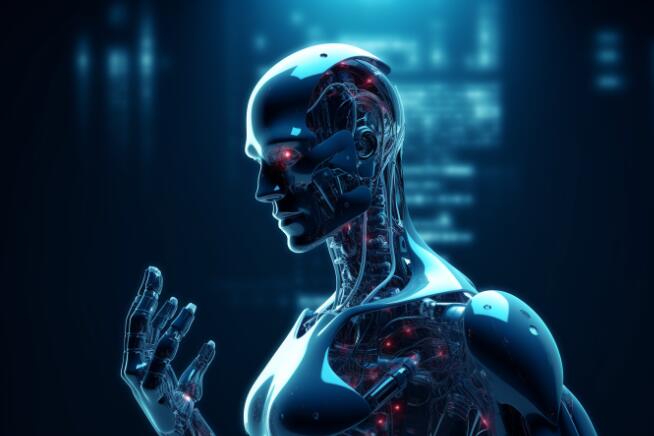The "Transparency and Accountability in Artificial Intelligence Networks Act" (TRAIN Act) proposed by U.S. Senator Peter Welch aims to improve the transparency of artificial intelligence development and protect the rights and interests of copyright holders. The bill gives copyright owners the right to request training data if they reasonably suspect that their works have been used to train AI models without authorization. For creative workers such as artists and musicians, this is an important measure to deal with the risks of copyright infringement brought by the rapid development of AI technology. The proposal of the bill reflects society's growing concern about the ethics and legal norms of AI technology.
U.S. Senator Peter Welch of Vermont recently proposed a new bill called the "Transparency and Accountability in Artificial Intelligence Network Act" (TRAIN Act), which aims to increase transparency for artificial intelligence developers.
The legislation, if passed, would enable copyright holders to issue subpoenas to obtain training records if they believe their work has been used to train artificial intelligence models without authorization.

Picture source note: The picture is generated by AI, and the picture authorization service provider Midjourney
Under the bill, copyright holders would only need to declare a "good faith belief" to require AI developers to provide training materials sufficient to determine whether to use their works. If a developer fails to comply with this requirement, it will be legally assumed that it has indeed used the relevant copyrighted work until it can prove the contrary.
Welch said in the statement that as artificial intelligence becomes more and more integrated into American life, "a higher standard of transparency must be set." He emphasized: "If your work is used to train artificial intelligence, as a copyright holder, you should have a way to determine whether it has been used, and obtain corresponding compensation if it is used." He pointed out that artists, music Writers and creators need a tool to discover if AI companies are using their work without permission.
The rapid development of generative artificial intelligence technologies in recent years has raised many legal and ethical issues, particularly concerns among artists that these tools may allow others to copy their work without permission, attribution, or compensation. For example, a viral spreadsheet from Midjourney, a well-known AI art generation tool, listed thousands of artists and their works, further confirming the artists' concerns.
At the same time, many companies that rely on human creations are also beginning to take action against AI developers. Recently, news organizations such as The New York Times and The Wall Street Journal have filed infringement lawsuits against companies such as OpenAI and Perplexity AI. The world's largest record labels also jointly sued two well-known AI music generation companies in June this year, claiming that they used decades of copyrighted music records for model training without authorization.
As the legal dispute intensifies, more than 36,000 creative professionals, including Oscar-winning actor Julianne Moore, writer James Patterson and Radiohead's Thom Yorke, have signed an open letter calling for a ban on unauthorized Training artificial intelligence using human artwork. Although the United States has not yet introduced comprehensive federal laws to regulate the development of artificial intelligence, some states have begun to promote AI-related regulations.
Welch said the bill has support from several organizations, including the Screen Actors Guild, the American Musicians Guild and the Recording Academy, as well as major corporations. Still, with Congress’s busy schedule and many priorities that must be addressed, the bill is unlikely to pass in this Congress. Welch's office said it plans to reintroduce the bill next year.
Highlight:
Senator Peter Welch proposed a new bill aimed at enhancing the transparency of artificial intelligence developers and protecting the rights and interests of copyright holders.
The bill allows copyright holders to request training records of artificial intelligence models based on "good faith belief."
The bill has the support of several arts and music organizations, despite facing challenges from Congress' tight schedule.
The future direction of the TRAIN Act is still uncertain, but it marks an important step in the regulation of artificial intelligence in the United States and provides a reference for more complete AI copyright protection laws in the future. The proposal of this bill also reflects the emphasis on intellectual property protection and technological ethics, and deserves continued attention.